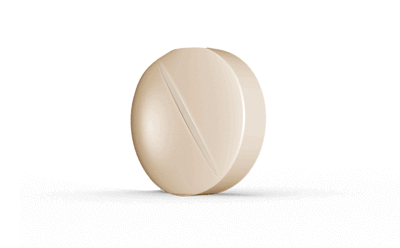Diuretics
What Are Diuretics?
A diuretic or water pill is a medication that helps eliminate salt and water from the body by helping patients pass out more urine. These drugs are often the first medication prescribed by a doctor to manage excessive blood pressure. They work by reducing the quantity of fluid in the blood vessels, making it easier for the heart to pump.
Water pills can also manage congestive heart attacks, liver, kidney, and edema problems.
Common Water Pill or Diuretic Types
Water pills are of three major types. Although some are more powerful than others, they all serve the same purpose. Some examples of this medication include:
Thiazides: Of all three variants, medical practitioners use thiazides the most. They lower bodily fluids and relax blood vessels. Some thiazide examples include:
- Hydrochlorothiazide
- Metolazone
- Indapamide
- Chlorthalidone
Loops: Drugs in this group target the loop of Henle to expel unwanted water and salt from the body. They have a higher potency than Thiazides and are utilized in emergencies. In addition, doctors recommend loops as a heart attack treatment’
Some loops examples include:
- Furosemide
- Torsemide
- Bumetanide
Potassium-sparing: A common side-effect of the aforementioned water pills is the loss of potassium, which leads to other medical challenges. However, potassium-sparing diuretics will limit fluid intake without triggering potassium loss.
Doctors prescribe potassium-sparing water pills for patients with low potassium levels. Nonetheless, they’ve been noticed to be less effective than thiazides at reducing blood pressure.
Some potassium-sparing diuretics examples include:
- Amiloride
- Eplerenone
- Triamterene
- Spironolactone
What Are Some Diuretics Side Effects?
Patients rarely report any negative effects from using diuretics. Nonetheless, these drugs have a few known side effects. Some users report the following:
- Dizziness
- Sodium deficiency
- Headache
- Excessive thirst
- Reduction of potassium in the blood
- Excess potassium in the blood
- Increased cholesterol level
- Muscle spasms
The pills may trigger significant adverse effects like:
- Irregular heartbeat
- Kidney failure
- Severe allergies
Consult your physician if you suspect any of these side effects. You may be placed on a different medication that works better with your system.
Who shouldn’t take diuretics?
Some brands of diuretics could include sulfenamide, which might cause side effects in some persons. If you have allergies to such medicines, talk to your doctor before taking them. Water tablets are safe for older adults, though they may experience minor side effects like dizziness.
Diuretics are also safe for nursing moms, but caution when taking them. Children can take these as well but in smaller doses.
Always Consult with Your Doctor
Some conditions, such as mild hypertension, can be controlled with water pills. However, they may not be the only treatment options for more severe problems. After receiving your prescription, feel free to ask your doctor any questions you have about it.
Always review your diet and nutritional intake with your doctor to avoid issues. Also, notify your doctor if you’re using any additional drugs, herbal supplements, or dietary supplements.
Some medications may necessitate the consumption of specific foods, like a low-salt diet or foods with a high potassium content. You may also need to include extra fruits and vegetables in your diet. These foods help restore the vitamins that your body may lose when taking diuretics.






